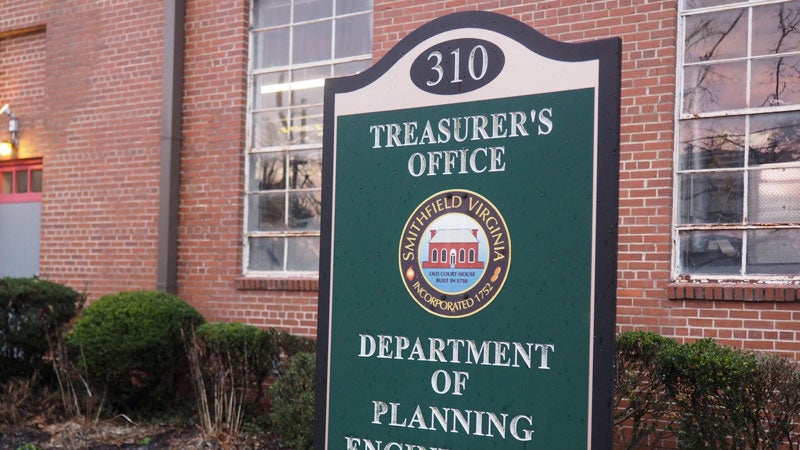Smithfield planners OK limited waiving of public hearings
Published 2:09 pm Wednesday, February 15, 2023

- File photo
If developers looking to build in Smithfield want a post-approval change to their proffer agreements with the town, they currently have to go through the rezoning process again, which entails a mandatory public hearing.
A proposed revision to the town’s zoning ordinance, which Smithfield’s Planning Commission voted on Feb. 14 to forward to the Town Council with a favorable recommendation, would allow the council to waive the public hearing requirement in limited instances.
Proffers are commitments made by developers during the rezoning process intended to mitigate the impact of a proposed housing development, such as cash payments or land for infrastructure that would serve the development.
State law changed in 2016 to prohibit localities from requesting or accepting “unreasonable” proffers, defining the term as any condition not “specifically and uniquely attributable” to the requested rezoning. According to Town Attorney Bill Riddick, localities are no longer allowed to request cash payments in exchange for approving a rezoning.
The town’s zoning ordinance currently mandates no amendment be made to any accepted proffer except via a new rezoning application. According to Tammie Clary, the town’s director of planning and community development, the requirement is contrary to a 2017 state law allowing governing bodies to waive the public hearing requirement if the proffer amendment would not affect the development’s “use or density.”
According to Riddick, town staff discovered the conflict with state law upon learning the written proffers Virginia Beach-based developer Napolitano Homes had filed at the Isle of Wight County Courthouse for the 812-home Mallory Pointe development to break ground this year still included a community pier that had been cut from the plans when the project was approved in 2021.
The pier and an associated kayak and canoe storage facility had been part of the original development plans for the former Mallory Scott Farm. Napolitano and the Town Council had mutually agreed to forego building the pier amid staunch opposition to the development from residents.
Chris Torre, a Main Street resident, called the change a “bad idea” at the Planning Commission’s public hearing on the proposed ordinance change.
Should a developer decide post-approval to decrease his or her proffers, and the council choose to forego a public hearing on the matter, “nobody would know it but you guys,” Torre said, referring to the Town Council.
Planning Commission Chairman Charles Bryan noted the council would still have the option of holding a public hearing. It just would no longer be required by the town code to do so. Randy Pack, who serves as the council’s liaison to the Planning Commission, however, joined Torre in opposing the change as initially written.
“It’s too ripe for abuse,” Pack said, proposing instead to add language requiring any decision to waive a public hearing be done by a formal majority vote at the council’s regularly scheduled monthly meeting. The commissioners voted unanimously in favor of the zoning ordinance change with Pack’s amendment added.
Before suggesting the added language, Pack made a motion that the Planning Commission send an unfavorable recommendation to the council on the proposed ordinance change. Pack’s motion received no second, though Commissioner Raynard Gibbs agreed that the originally proposed language “takes away transparency.”
Noting that the proposed change already exists in state law, “we don’t have a lot of flexibility,” said Commissioner Bill Davidson, who was recently reappointed to the advisory body after stepping down in 2020.
Virginia is a Dillon Rule state, named for Iowa Supreme Court Justice John Dillon, which specifies municipalities can only exercise powers specifically granted to them by the state legislature. Riddick stated that should the Planning Commission vote to send an unfavorable recommendation, he would advise the council to disregard the recommendation on grounds that it had an obligation to comply with state law.
Should the council still vote to reject the change, a developer could potentially take the town to court. “And we’d lose that case,” Riddick said.
With the waiving of a public hearing now requiring a formal vote per Pack’s amendment, residents would still have the opportunity to comment on the matter during the public comment period that opens each regular council meeting.





